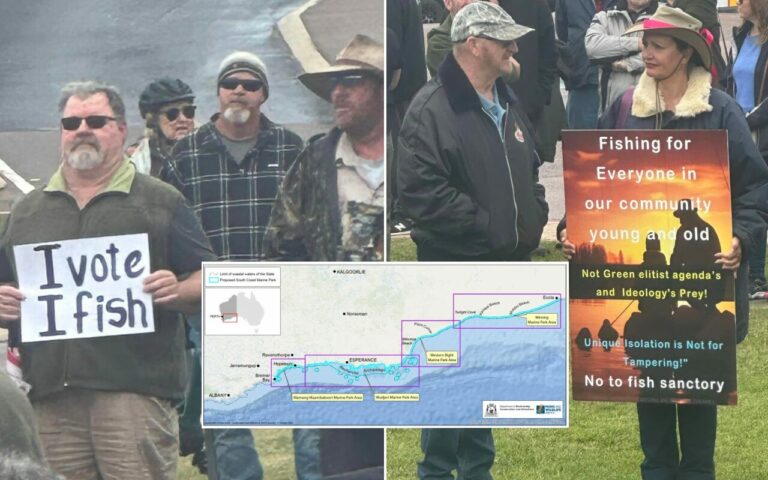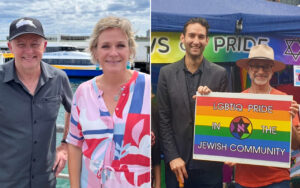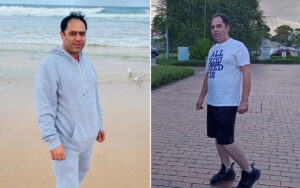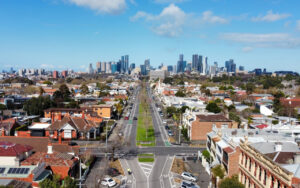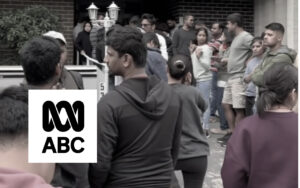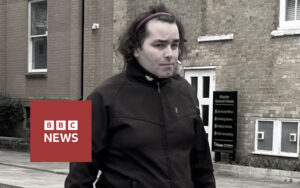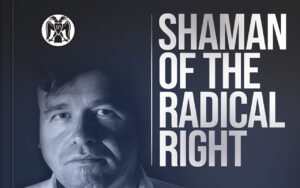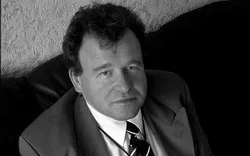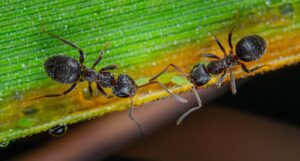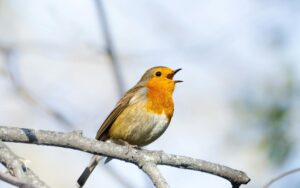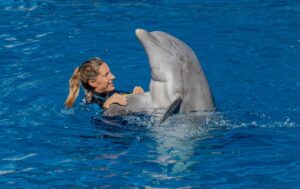Locals upset at plans for a new marine park along Western Australia’s south coast have turned out in huge numbers to protest and share their concerns over massive ‘sanctuary zones’ where only Indigenous people will be allowed to fish.
A large crowd gathered in Esperance on Sunday, objecting to the proposed South Coast Marine Park, which would be co-managed by four Indigenous groups and ban beach fishing along hundreds of kilometres of coastline between Bremer Bay and the WA border.
Commercial fishers have also opposed the plan, which will exclude local operators from 25% of the waters within the marine park, many of whom run family businesses and fear they will not be able to survive if the proposal is approved.
“Customary fishing” – which the plan defines as applying “to an Aboriginal person who has a traditional connection with the area being fished” – will be allowed in all zones of the park, which stretches for 1,000km.
“The ability for Aboriginal people to carry out cultural activities, including fishing and hunting is an important part of Aboriginal culture and connection to the land and sea,” the proposal states.
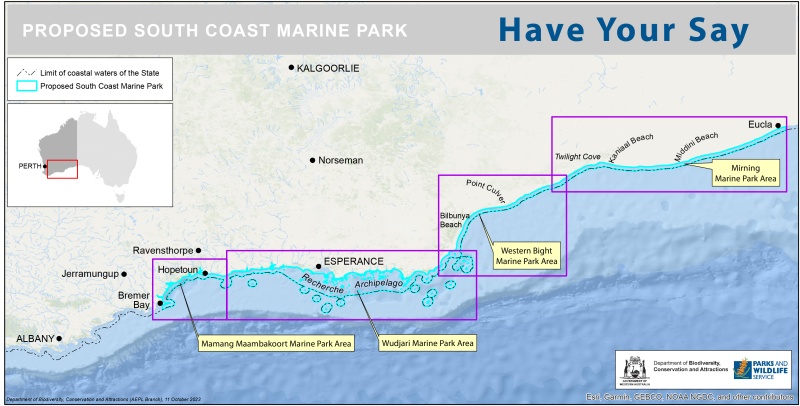
The state government said “consideration” would be given to moving the controversial sanctuary zones 200m from the mainland to allow recreational and commercial fishing from and close to the shore, but only after the public submission period.
“You will still be able to beach fish from 78% of the proposed marine park coastline,” Parks and Wildlife Service Western Australia said.
On Sunday morning protesters held signs reading “Fishing for everyone in the community, young and old”, “I vote, I fish”, and “already sustainably managed”.
Deputy Leader of the Liberal Party Steve Martin described the turnout as “massive” and said locals don’t feel like the state Labor government is listening to their concerns.
Nationals WA Deputy Leader Peter Rundle has also objected to the plans, saying the state government has “got it wrong”.
He said they have refused to undertake a proper socio-economic assessment, used a 30-year-old report for the scientific basis behind the plans, offered minimal community consultation in early planning, and ” lacked transparency on compensation provisions for commercial fishing operators and local businesses”.
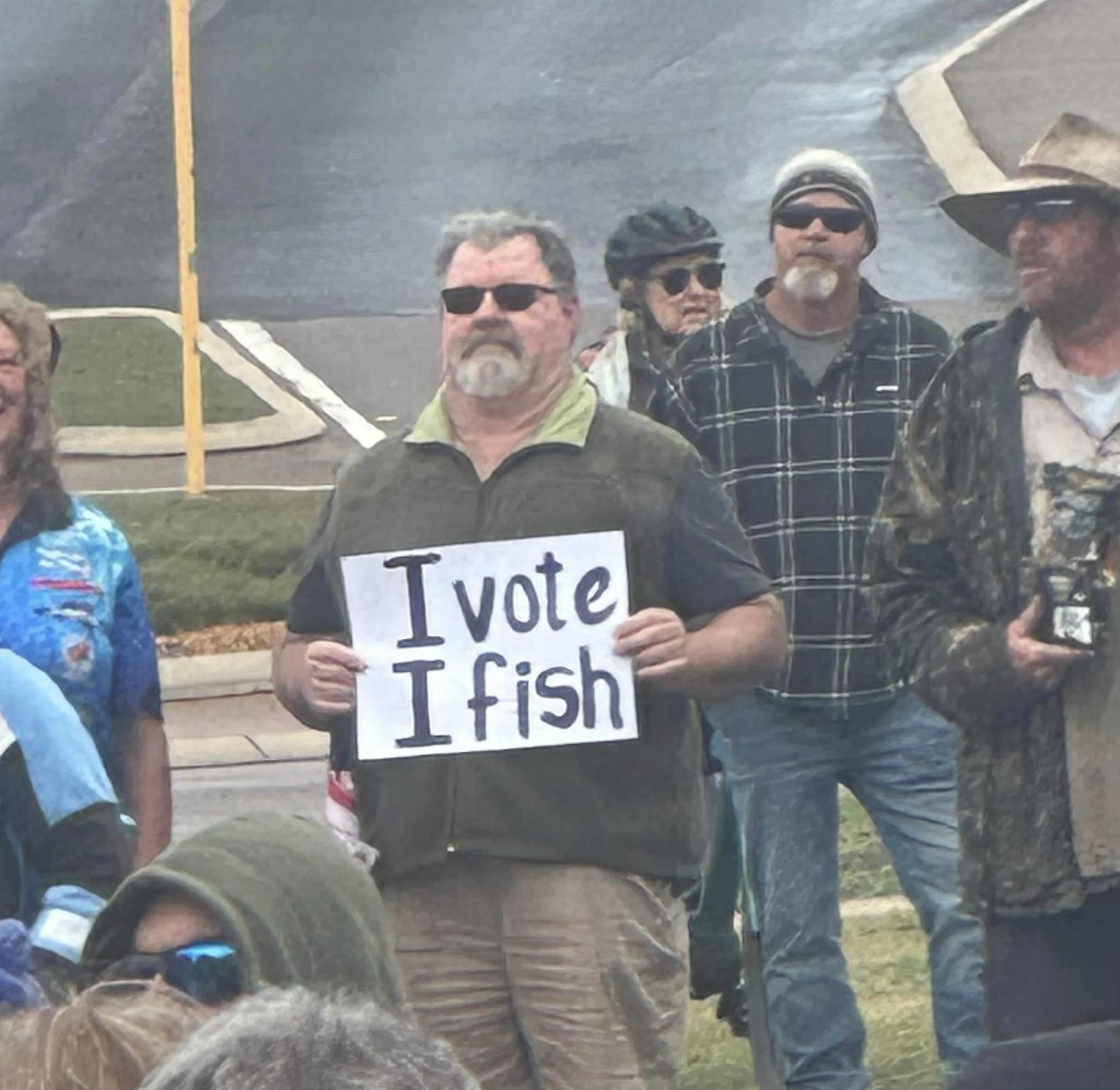
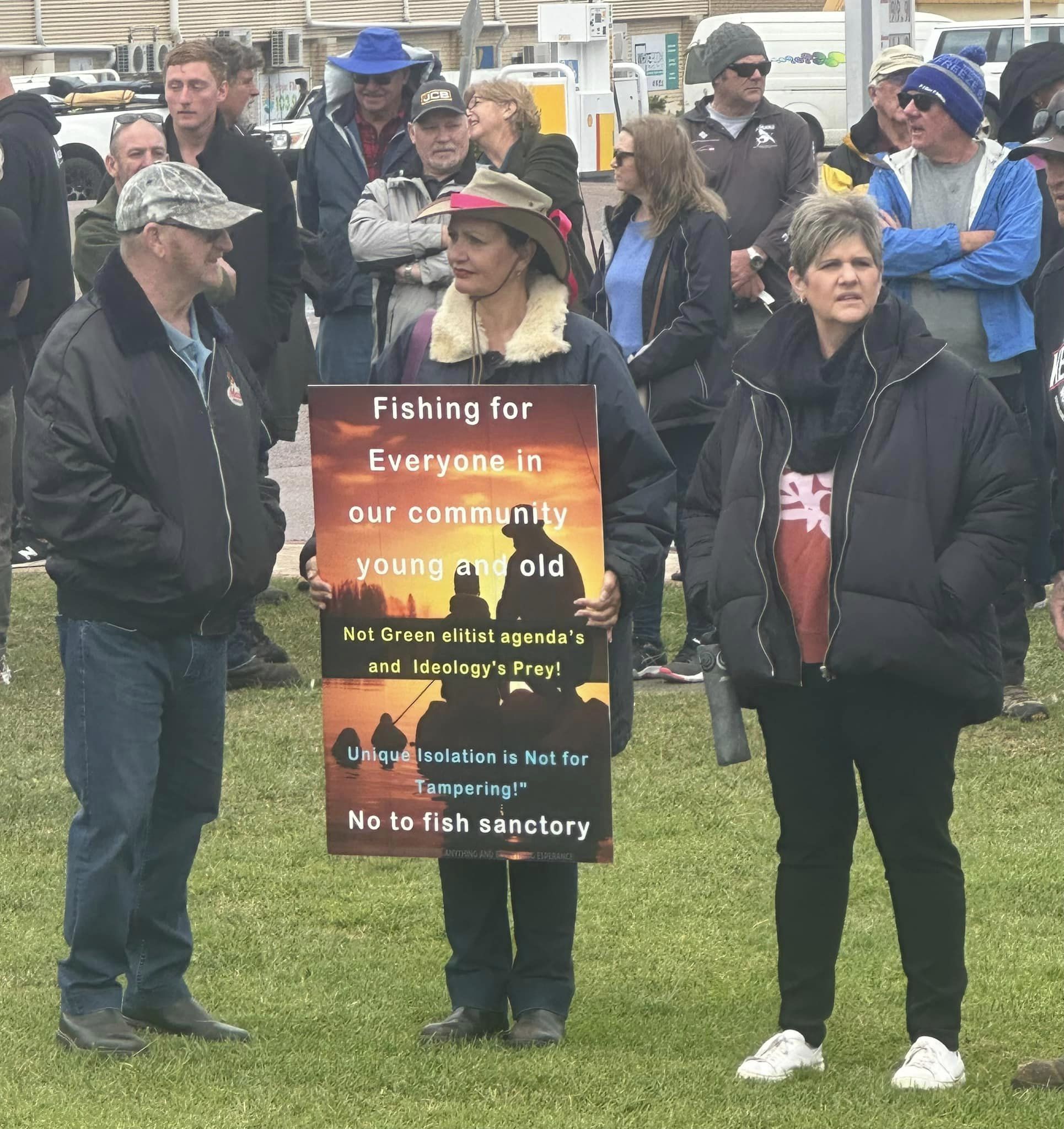
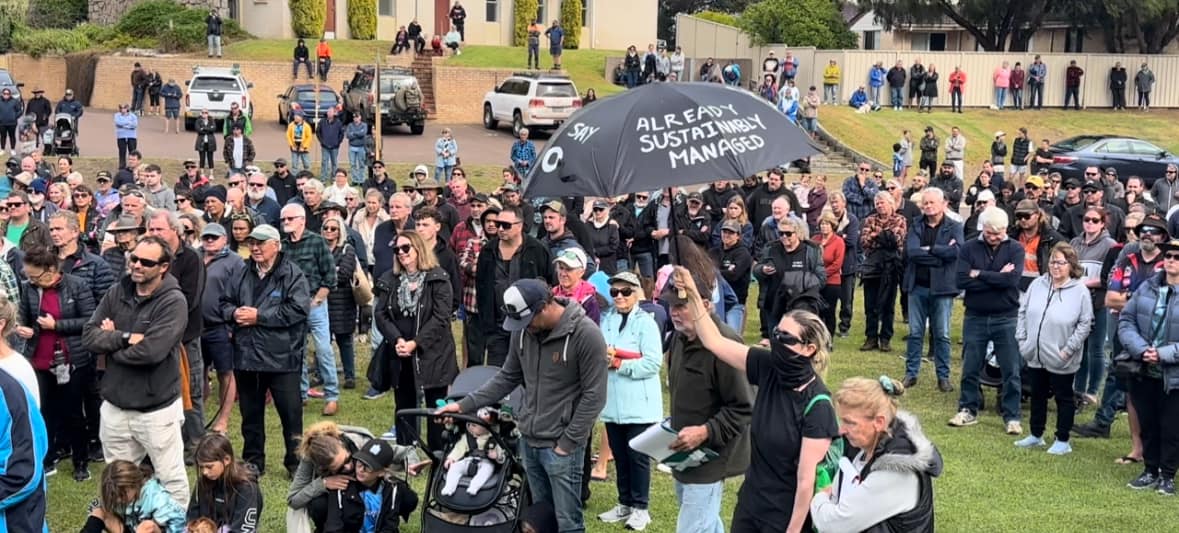
Minister for Environment Reece Whitby said earlier this year that the plan would create new tourism opportunities and “rival Ningaloo and the Great Barrier Reef”.
“It is the job of the state government to reach a practical realistic balance, which balances the needs of commercial fishers, rec fishers, the conservation interests, traditional owners and the tourism industry. So I think we’ve done very well,” he said.
Local Aboriginal groups responded to community concerns about the park by accusing critics of “racism” and “misinformation”.
Esperance Tjaltjraak Native Title Aboriginal Corporation chief executive Peter Bednall told ABC News on Saturday that the debate over the park was “perpetuating a hostile and unsafe environment for Aboriginal people”.
“You cannot lead this community if you are silent in the face of racism and conspiracy, allowing this behaviour to flourish,” a letter from the corporation to political leaders stated.
“We call on leaders to urge all sides to make their case through the submission process — and to leave racist slurs out of the debate.”
The protest comes amid concerns about a similar proposal in South Australia to ban non-Indigenous people from much of the Lake Eyre National Park, which is also co-managed by a powerful Aboriginal corporation.
The new management plan proposed by the SA government and the Arabana Aboriginal Corporation would ban visitors from walking, driving or boating on the lake bed of the iconic tourist attraction without permission from the so-called traditional owners.
Noticer News contacted Mr Martin, Mr Rundle and the Esperance Tjaltjraak Native Title Aboriginal Corporation for comment.
